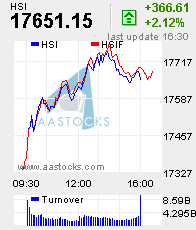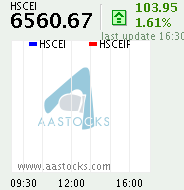ADB warned against extensive subsidies on food and fuel to ease the pain of consumers
Quamnet.com News: from Xinhua Newsfeed
More inflation pain
"In the near term, the major risks lie not so much in softer growth but in rising commodity prices and accelerating inflation," said ADB president Haruhiko Kuroda.
"If inflation expectations are allowed to become ingrained, this could create distortions that damage productivity growth over a protracted period," he said.
The ADB warned against extensive subsidies on food and fuel to ease the pain of consumers.
"Though governments may be tempted to resist commodity price increases through administrative measures, these are likely to come with a high fiscal price tag, which may add to future inflation," it said.
The bank cited the case of Indonesia, which it said spends inordinate amounts of budgetary resources on fuel subsidies alone. These subsidies are much larger than what the country spends on education and health services, it said.
"If governments do not rethink these expensive and inefficient subsidy programs, fiscal costs could escalate sharply and require painful adjustments (of accelerating inflation, or both) later," the ADB said.
China, India still solid
The ADB expects growth in China and India, the economic powerhouses of Asia, to remain solid this year. After its 11.4-percent expansion last year, China's economy is expected to grow by 10.0 percent this year and 9.8 percent in 2009, it said.
"The contribution to growth of investment is expected to decline slightly and that of consumption to rise moderately," the bank said.
Growth in Hong Kong, Mongolia and Taiwan will also slow due to a faltering global economy and their links to China, it said. The ADB said growth in China's trade surplus is expected to decelerate.
The bank said India's economic growth is likely to moderate further to 8.0 percent in fiscal 2008, following the slowdown that began last year, and pick up to 8.5 percent in the next fiscal year.
The Indian economy grew 8.7 percent in fiscal 2007, following its 9.6-percent expansion in the previous year.
Slower exports are expected to hurt Southeast Asian economies including Malaysia, Singapore, Thailand, Vietnam and the Philippines.
(Extracts from Quamnet.com News)
Also at http://wongtc.blogspot.com/2008/04/blog-post.html










